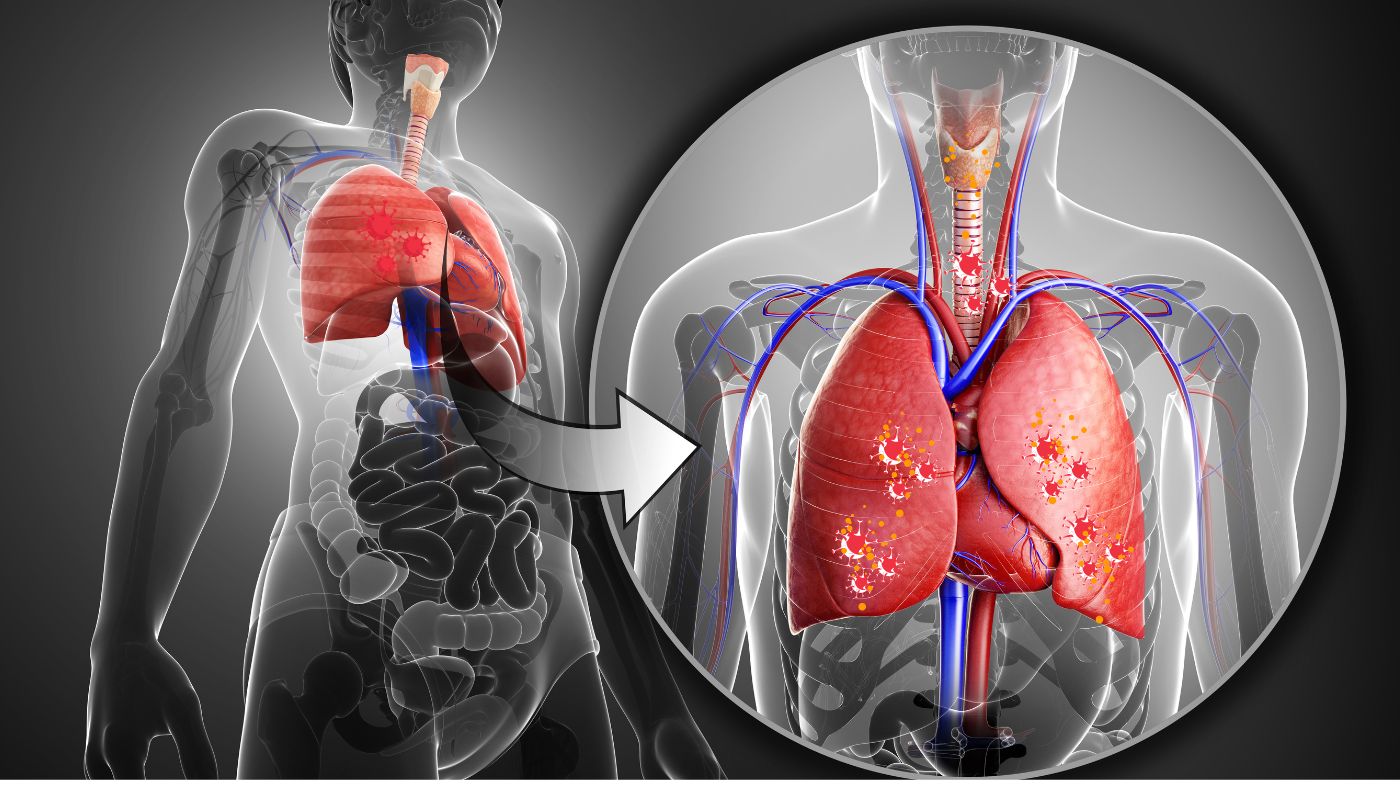|
How long does radon take to cause cancer? This is a question that lingers in the minds of many individuals who are concerned about their health and well-being. Radon, an invisible radioactive gas that occurs naturally through the decay of uranium in soil, cannot be detected without proper testing as it remains undetectable by the human senses. As it exists at low levels in outdoor air, radon can accumulate to dangerous concentrations indoors - particularly in confined spaces such as basements and crawl spaces. This article will delve into the truth about radon and its potential dangers to human health. Is Radon Really That Bad? Unraveling the MysteriesHere are a few key points that may help you comprehend the dangers associated with radon: Radon Exposure and Lung Cancer: Learning the ConnectionOne of the greatest dangers posed by exposure to radon is lung cancer, according to multiple studies conducted by organizations like WHO and USEPA. Radon exposure has been identified as the second leading cause of lung cancer after smoking - it is estimated to cause thousands of lung cancer deaths every year. When inhaled, radon gas decays and releases radioactive particles, which become lodged within the lungs and release radiation, gradually damaging lung tissue over time. Prolonged exposure to high radon levels causes lung cancer in those with smoking histories or individuals exposed over a long period. Radon Danger: Understanding Health RisksRadon poses an imminent health threat as an invisible intruder. While other pollutants might produce immediate symptoms or discomfort, radon exposure does not produce immediate visible effects in its short-term presence - meaning individuals could breathe it in for years without being aware of its dangers to their well-being. Exposure to high radon levels for extended periods can increase your risk of lung cancer. Although its effects may take years, taking preventive steps and testing for radon in your home regularly is critical in protecting its inhabitants from its dangers. Radon Testing: A Vital Step for ProtectionRegular radon tests are an easy and necessary way to protect yourself and those around you from exposure to this potentially lethal gas. Testing kits are readily available online or from local hardware stores; place a detector in the lowest livable area for several days up to several months for your home to collect data that can then be analyzed to determine whether remedial action needs to be taken. At least every few years, conducting a radon test in your home is recommended since levels can fluctuate due to environmental conditions, construction methods, and ventilation systems. Mitigation: Reducing Radon Levels in Your HomeIf testing indicates elevated radon levels in your home, immediately mitigating them is imperative. Radon mitigation techniques aim to lower radon gas concentrations to safer levels to minimize any potential health hazards. Common mitigation techniques are
Consult a radon mitigation specialist to assess your situation and select an effective mitigation strategy for your home. Radon in the Community: Raising AwarenessAddressing the radon problem requires collective efforts from all members of society; raising awareness is key in combating its harmful health effects and raising the appropriate levels. Local governments and health organizations play an integral role in providing education about testing for radon exposure as well as resources for mitigation. By sharing knowledge about radon exposure and encouraging testing and mitigation efforts, we can all work towards creating safer living environments and decreasing risks associated with this radioactive gas. Final ThoughtsRadon poses a grave health threat that should never be underestimated. Yet, its invisible nature necessitates taking precautionary steps against this radioactive gas to safeguard oneself and your loved one from its potentially fatal effects. Regular testing for radon in residential spaces, particularly apartments, is essential to detect and mitigate any elevated concentrations as soon as possible. Professional mitigation techniques may help significantly decrease these concentrations and, therefore, lower the risks associated with lung cancer. Remember, knowledge is power. By keeping informed about radon's risks and effects on health and promoting a safer living environment for yourself and your loved ones, you can take effective steps to safeguard health while creating a more comfortable living space. With that in mind, take all necessary precautions and act immediately to decode its potential dangers. FAQsDoes radon warrant concern?Radon is currently the second most common cause of lung cancer in the United States, according to the country's Surgeon General. You have a particularly significant risk of developing lung cancer if you smoke and your home has high radon levels. How harmful is radon to people?When you breathe in radon gas, it decomposes into radioactive particles that can become stuck in your lungs. These particles generate little energy bursts as they decompose more. Throughout your lifetime, this can harm lung tissue and cause lung cancer. Is it true that radon causes cancer?What causes cancer in radon? Rapid radon decay releases small radioactive particles. These radioactive particles can harm the lung's lining cells when inhaled. Lung cancer is the only cancer confirmed to be linked to breathing radon and can be brought on by prolonged exposure to the gas. How come radon is so stable?Given that there are no stable isotopes of radon, it is radioactive. Radon-222 (222Rn or Rn-222) is the most stable isotope, having a half-life of 3.8 days (92 hours). The disintegration of radium, uranium, and thorium—its longer-lived progenitors—maintains the radon concentration in soil and rock.
0 Comments
Radon is a radioactive substance that occurs naturally and poses a substantial health danger because it is the leading cause of nonsmokers' lung cancer. It is a colorless, odorless gas that can enter homes and other structures. Unfortunately, radon is particularly prevalent in Colorado, putting residents at an increased risk of exposure. So, should you test for radon in Colorado? Let's examine the dangers of radon, how it enters houses, the need for testing, and the radon levels in Colorado. Read on to learn more. The Danger of RadonRadon is a dangerous gas formed by the natural decay of uranium in rocks, soil, and water. When this gas is released into the atmosphere, it swiftly degrades into other radioactive particles that can be breathed into the lungs. Long-term exposure to these particles, even in nonsmokers, can cause lung cancer. How Radon Enters HomesThe following are some common routes for radon to enter your home:
Ventilation Systems: Ventilation systems in homes may act as conduits for radon gas to enter your home and circulate throughout its structure. Radon can enter via this route and eventually spread throughout. The Importance of Radon TestingRadon is a severe health risk, and testing your house for radon is critical to protect your family's safety. Here are some of the reasons why radon testing is so important:
Peace of Mind: Radon testing in your home helps protect you and your family from this silent killer. If you have excessive levels of radon in your home, you can take steps to mitigate the problem and limit your exposure. The Radon Levels in ColoradoThe amount of radon in Colorado is one of the biggest in the country. The Department of Public Health and Environment says radon levels in about half of the state's homes exceeded the EPA's suggested action level of 4.0 pCi/L. Some sections of the state have considerably higher levels, particularly along the Front Range. As a result of these high levels, the state has enacted a Radon Resistant New Construction (RRNC) construction code for new homes. What Should You Do If You Find High Radon Levels?If your home has excessive radon levels, you should reduce your exposure. Here are a few ideas: Install a Radon Mitigation SystemThe most effective way to lessen radon levels in your home is to install a radon mitigation system. This system comprises a ventilation system that pulls radon gas from the home and vents it outdoors. A certified radon mitigation technician can install the system. Seal Cracks and OpeningsSealing cracks and gaps in the foundation is another approach to lower radon levels in your home. This can help to keep radon out of the house in the first place. To seal cracks and openings, use caulk or other sealants. Test Before Buying a New HomeIf you purchase a new house, you should have it tested for radon before moving in. Radon testing is usually done as part of the house inspection process. If excessive radon levels are discovered, you can negotiate with the seller to install a radon mitigation system before closing. Retest After MitigationIf you have built a radon mitigation system or made other improvements to your house to minimize radon levels, you should retest to check that the levels have been reduced. Before testing, you should wait at least 24 hours after installing the system. Final ThoughtsRadon is a serious health risk that should not be underestimated. Homeowners in Colorado should seek radon testing to ensure they are not at risk. Testing is simple and inexpensive, and it can bring peace of mind.
Colorado residents should be proactive in protecting themselves and their children from this hazardous gas, as the state has some of the highest radon levels in the country. Remember, radon testing is the only way to determine if your home has excessive radon levels, so don't wait - test your home today. By doing this, you can ensure you and your loved ones are inhaling safe, healthy air. |
AuthorColorado Springs Radon Mitigation is a professionally licensed radon team Categories |
COMPANY INFORMATIONADDRESS
Colorado Springs Radon Mitigation 1885 Pima Dr Colorado Springs, CO 80915 MONDAY TO SUNDAY
8 AM–8 PM |
LINK RESOURCES |
CALL US NOW!
SOCIAL MEDIA |



